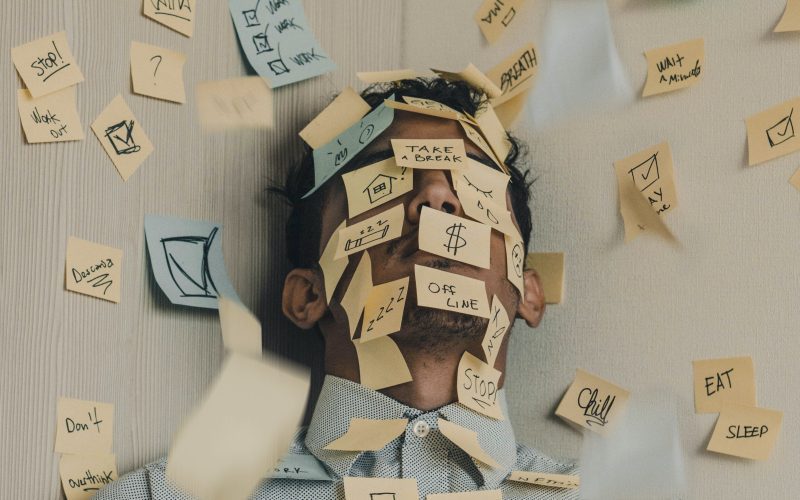Are you feeling overwhelmed with work deadlines, meetings, and endless to-do lists? Do you find yourself tossing and turning at night, unable to switch off your racing thoughts? As a busy professional, stress is something that comes with the territory. But fear not! There are effective ways to manage stress and restore balance in your life. In this blog post, we will explore the power of yoga and mindfulness for stress-relief techniques that can be easily incorporated into your daily routine. So grab a mat or find a quiet spot- it’s time to take care of YOU!
The Importance of Stress Relief
We all know that stress can have a negative impact on our health, but did you know that it can also lead to productivity issues at work? That’s why it’s so important to find effective stress-relief techniques that work for you.
Yoga and mindfulness are two popular stress-relief techniques that can be easily incorporated into your busy schedule. Yoga helps to stretch and strengthen your body, while mindfulness allows you to focus on the present moment and let go of any worries or stresses.
Other effective stress-relief techniques include deep breathing exercises, meditation, and aromatherapy. If you’re not sure where to start, there are plenty of resources available online or from your local library.
The most important thing is to find what works for you and make stress relief a priority in your life. By taking some time for yourself, you’ll be able to better handle whatever life throws your way.
Different Types of Stress Relief Techniques
There are many different types of stress relief techniques that can be effective for busy professionals. Some popular options include yoga, mindfulness, and meditation.
Yoga is a great way to reduce stress and increase flexibility. There are many different types of yoga, so you can find one that fits your needs and schedule. Mindfulness is another excellent stress-relief technique. It involves being present in the moment and observing your thoughts and feelings without judgment. Meditation is another effective stress-relief tool. It can help you focus on your breath and clear your mind of negative thoughts.
If you’re looking for more ideas, there are many other resources available online or from your local library. Experiment with different techniques until you find one that works best for you.
Yoga
Yoga is a popular stress-relief technique for busy professionals. Yoga can help to reduce stress by improving the body’s ability to cope with stress and promoting relaxation. Yoga can also help to improve sleep quality and reduce fatigue.
Mindfulness
Mindfulness is a type of meditation in which you focus on being aware of your thoughts, feelings, and sensations in the present moment. The goal of mindfulness is to help you become more aware of your thoughts and feelings so that you can manage them in a more effective way.
There are many different mindfulness techniques that you can use to help you reduce stress and anxiety. One popular technique is called mindful breathing. This involves focusing on your breath and counting each inhale and exhale. Another popular technique is called body scan meditation. This involves focusing on each part of your body, from your toes to your head, and noticing any sensations that you feel.
You can practice mindfulness anytime, anywhere. There are also many apps and online programs that can help you get started with mindfulness.
Exercise
When it comes to stress relief, there are many different techniques that can be effective. However, not all of them will work for everyone. It’s important to find what works best for you and to make sure that you’re doing it regularly. One technique that can be effective for some people is exercise.
Exercise releases endorphins, which have mood-boosting properties. It also helps to reduce levels of the stress hormone cortisol. In addition, exercise can help to increase energy levels and improve sleep quality. All of these benefits can lead to reduced stress levels and improved overall well-being.
Of course, when you’re busy, it can be hard to find time to exercise. But even just a few minutes of activity can make a difference. If you can, try to fit in some form of exercise every day, even if it’s just a brisk walk around the block or a few minutes of stretching.
Nutrition
It’s no secret that chronic stress can have a serious impact on our health. From anxiety and depression to heart disease and stroke, the effects of long-term stress can be debilitating. But what about the day-to-day stress that we all experience? While it may not be as harmful as chronic stress, it can still take a toll on our mental and physical health.
That’s why it’s important to find ways to manage stress effectively. For busy professionals, this can be a challenge. With so many demands on our time, it can be difficult to find time for ourselves. But there are some simple techniques that can help us reduce stress and promote relaxation.
One of the most effective ways to reduce stress is through mindfulness. Mindfulness is the practice of being present in the moment and paying attention to our thoughts, feelings, and sensations without judgment. This can be done through meditation, yoga, or simply paying attention to our breath.
Another effective way to reduce stress is through nutrition. Eating a healthy diet helps to improve our mood and energy levels, which can make dealing with stressful situations easier. Getting enough sleep is also crucial for managing stress levels. When we’re well-rested, we’re better able to cope with whatever comes our way.
By incorporating these simple techniques into our lives, we can help reduce the negative impact of stress on our health.
Sleep
When it comes to stress relief, sleep is often overlooked. But getting enough rest is crucial for managing stress. When you’re sleep-deprived, your body’s stress response system is impaired, making you more susceptible to stressors. Getting enough quality sleep can help reduce stress and improve your overall health.
Here are some tips for getting better sleep:
1. Establish a regular sleep schedule. Go to bed and wake up at the same time each day, even on weekends. This will help regulate your body’s natural sleep rhythm.
2. Create a calming bedtime routine. Avoid watching television or working on the computer in the hours leading up to sleep. Instead, do something relaxing, such as reading or taking a bath.
3. Keep your bedroom dark, quiet, and cool. These conditions are ideal for sleeping well. If you can’t control the noise level in your environment, try using a white noise machine to drown out disruptive sounds.
4. Limit caffeine and alcohol consumption before bedtime. Both substances can interfere with sleep quality.
5. Get up and move around during the day. Exercise can help improve your sleep quality by promoting deeper and longer sleeps at night
Time Management
It’s no secret that stress can take a toll on our physical and mental health. When we’re feeling overwhelmed, it can be difficult to find the time to relax and recharge. However, taking even a few minutes out of your busy day to practice some simple stress-relief techniques can make a world of difference.
Yoga is a great way to reduce stress and tension in the body. There are many different yoga poses that can help to improve your mood and increase your energy levels. Mindfulness meditation is another effective stress-relief technique that can be done anywhere, at any time. Simply focusing on your breath and being present in the moment can help to clear your mind and ease anxiety.
If you’re looking for more ways to reduce stress, try these tips:
• Get regular exercise: Exercise releases endorphins, which have mood-boosting effects.
• Make time for yourself: Dedicate some time each day to do something you enjoy, without stress or obligations.
• Connect with friends and family: Spending time with loved ones can help reduce stress levels and promote feelings of happiness and calm.
Conclusion
Stress can be an ever-present part of our lives, but it doesn’t have to rule us. There are plenty of effective stress relief techniques that you can use when life starts feeling overwhelming. From yoga and mindfulness practices to simple lifestyle changes, there is something for everyone that can help in reducing anxiety and improving mental wellbeing. Taking the time to prioritize your mental health will not only help you manage challenging situations more effectively, but also give you space to appreciate the beauty of daily life’s moments.











